By Kayla Berkey
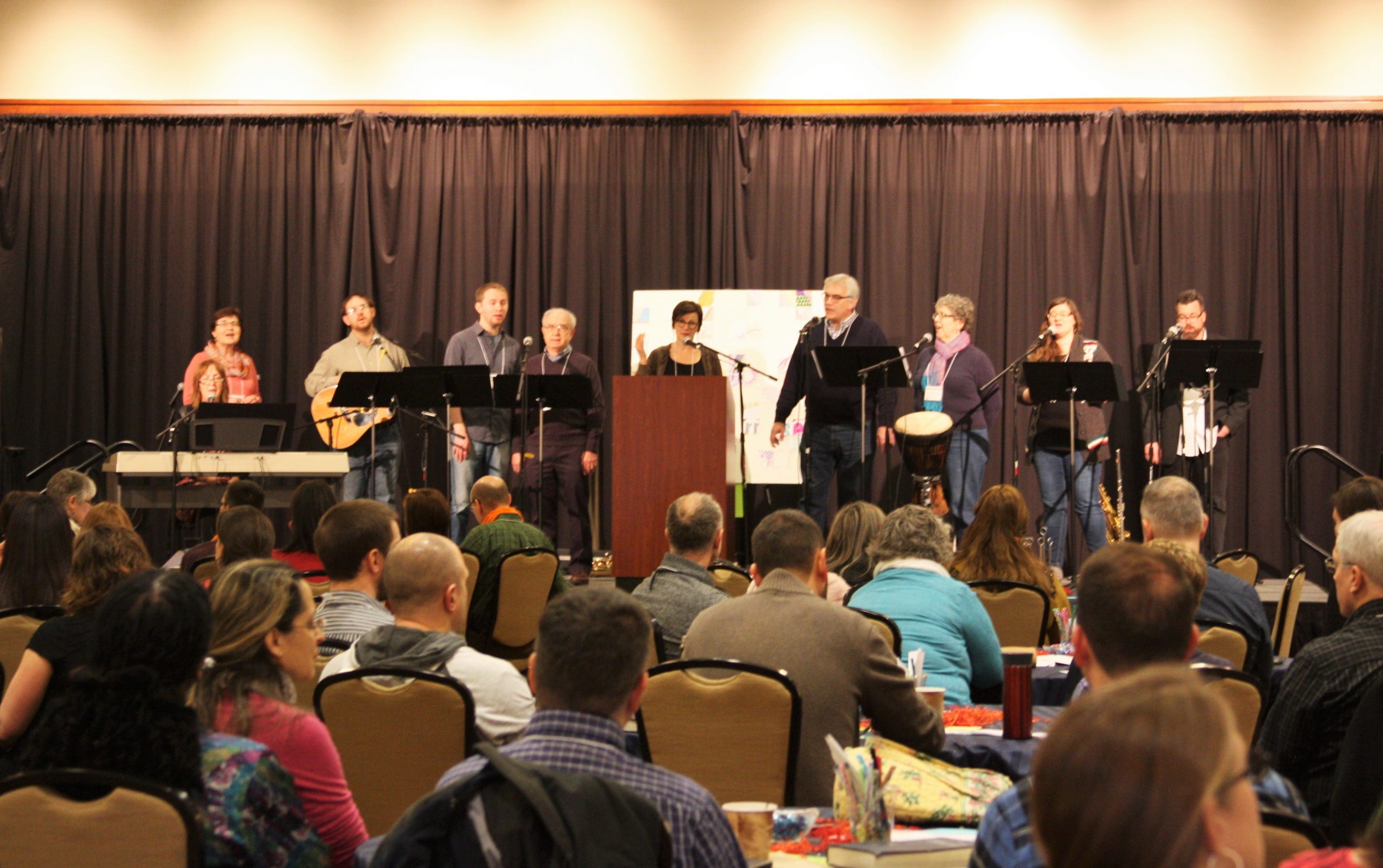
Marcy Hostetler leads music at the Mennonite Educators Conference together with music educators from several schools. Photo by Kayla Berkey.
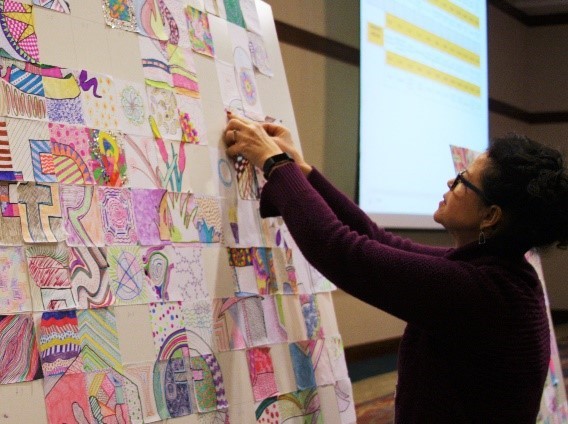
MEC participants build mosaics. Photo by Kayla Berkey.
LEESBURG, Virginia (Mennonite Education Agency/Mennonite Church USA) – The Mennonite Educators Conference opened on Thursday, February 1 with music and worship led by Marcy Hostetler and an invitation for conference participants to color the paper squares that were spread across their tables and use them to build mosaics. The conference theme “Unexpected Encounters…God Surprises” showed up in the mosaic images that slowly emerged throughout the weekend.
The three-day Mennonite Educators Conference (MEC), hosted by Mennonite Education Agency, took place in Leesburg, VA. MEC aims to provide professional development and networking opportunities for educators in early childhood schools through grade 12, and to engage in current trends and innovative practices in education and faith formation. This year’s conference attracted a large group of about 440 educators from 18 Mennonite schools and three universities, with attendees representing five countries – Albania, Canada, Colombia, Puerto Rico and the United States.
Daniel Porterfield on Holistic Education
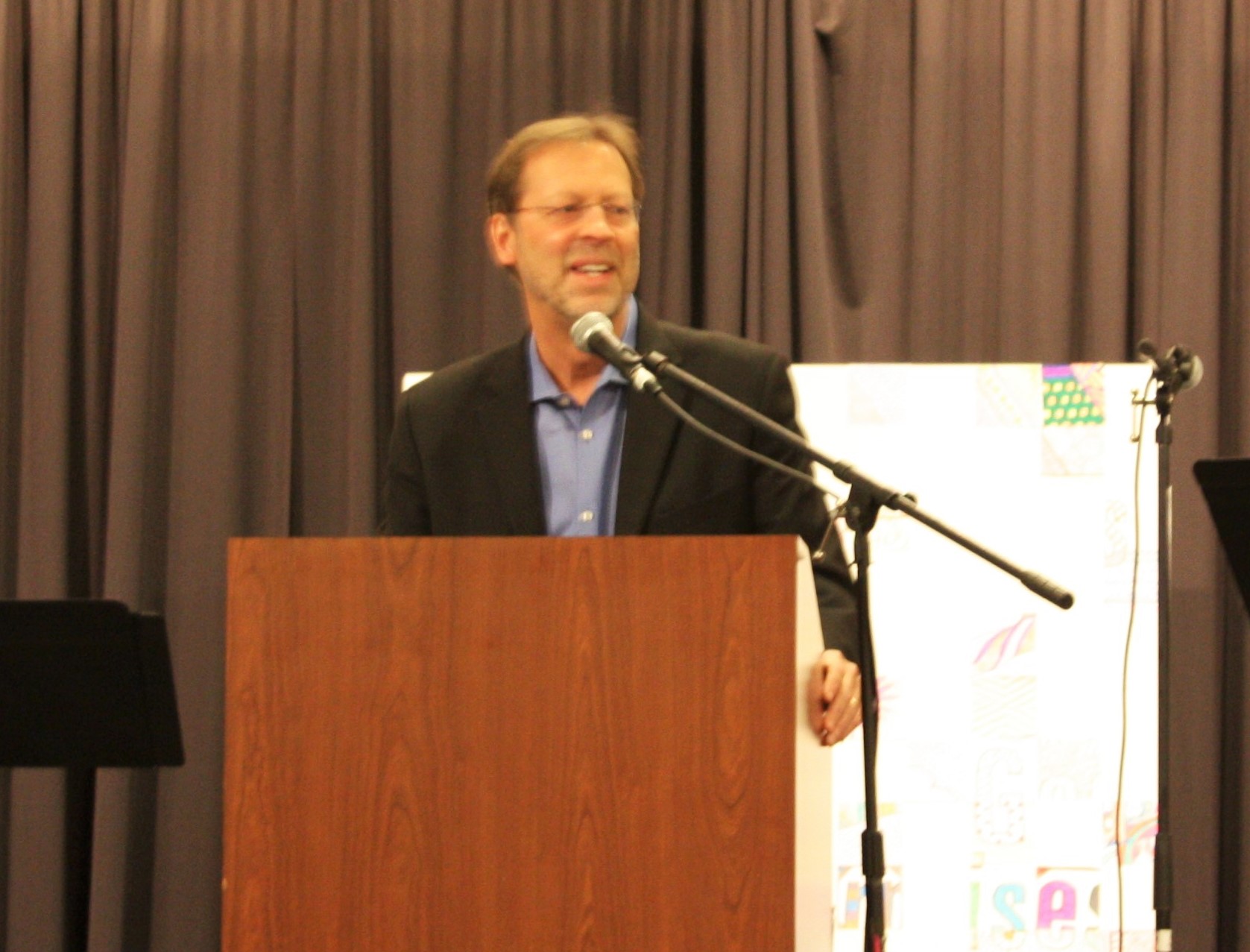
MEC keynote speaker Daniel Porterfield. Photo by Kayla Berkey.
Keynote speaker Daniel Porterfield, president of Franklin & Marshall College (F&M), opened the gathering with a focus on “composing the place” for students, asking educators to reflect deeply on the context in which students are formed. He highlighted realities that students face like information overload, changing demographics, anxiety for future occupations and global dilemmas. He also focused on the importance of empowering teachers to support transformational learning, sharing stories of several students he’s worked with from varied backgrounds at F&M.
“Our work today requires us to equip students with the will and the skill to tackle today’s hard problems,” said Porterfield. “We need educators who are open-minded, brave, relentless and prepared to put students first.”
In his second talk, Porterfield discussed the importance of mentorship and holistic education, dispelling the myths that the value of education is only found in measureable outcomes or achievements.
“Great education nourishes the spirit,” he said. “Education is not the filling of the paperwork or the stamping of a certificate, but the kindling of the fire.”
Sarah Bixler on Spiritual Formation
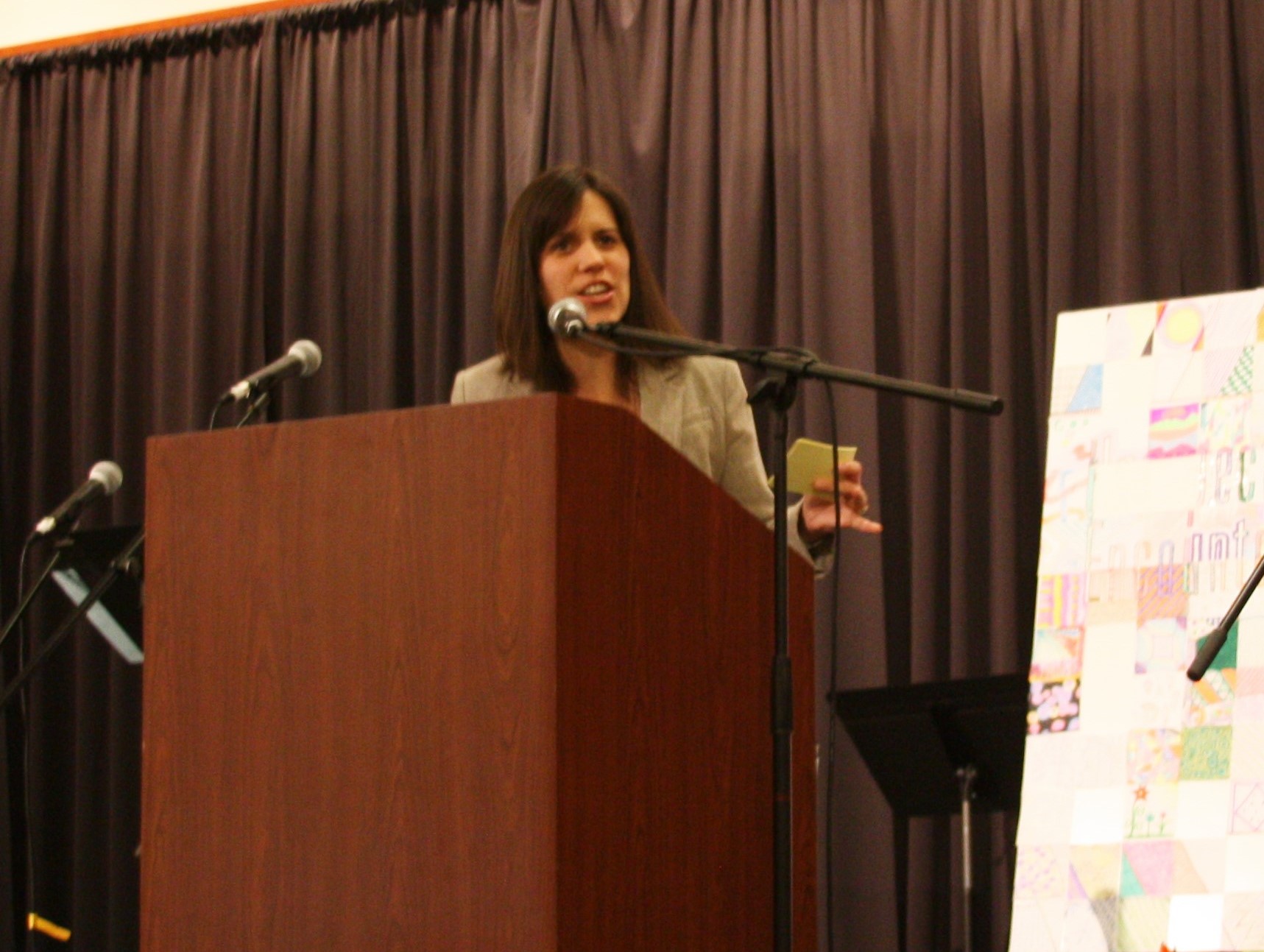
MEC keynote speaker Sarah Ann Bixler. Photo by Kayla Berkey.
The second keynote speaker was Sarah Bixler, a Ph.D. student in practical theology at Princeton Theological Seminary. Her two talks focused on intentionally integrating spiritual formation into the educational process.
She discussed the importance of helping children connect faith formation with learning at a young age and encouraged educators to create transformational classrooms where they establish a secondary level of control.
“Jesus shows us a model of classroom control based on compassionate authority for students,” said Bixler. “We prepare classrooms for a divine encounter.”
Bixler encouraged teachers to foster a sense of expectancy in themselves and in students for divine encounters to appear. She suggested regarding classrooms as sacred space, cultivating attentiveness and spiritual awareness in children and allowing them to lead.
“We should be open to unexpected encounters with God in our classroom, and it might mean we don’t get through the lesson plan that day,” said Bixler. “It’s not our job to transform students—that’s God’s job.”
Hubs, MennoCamps, and Encounter Curriculum
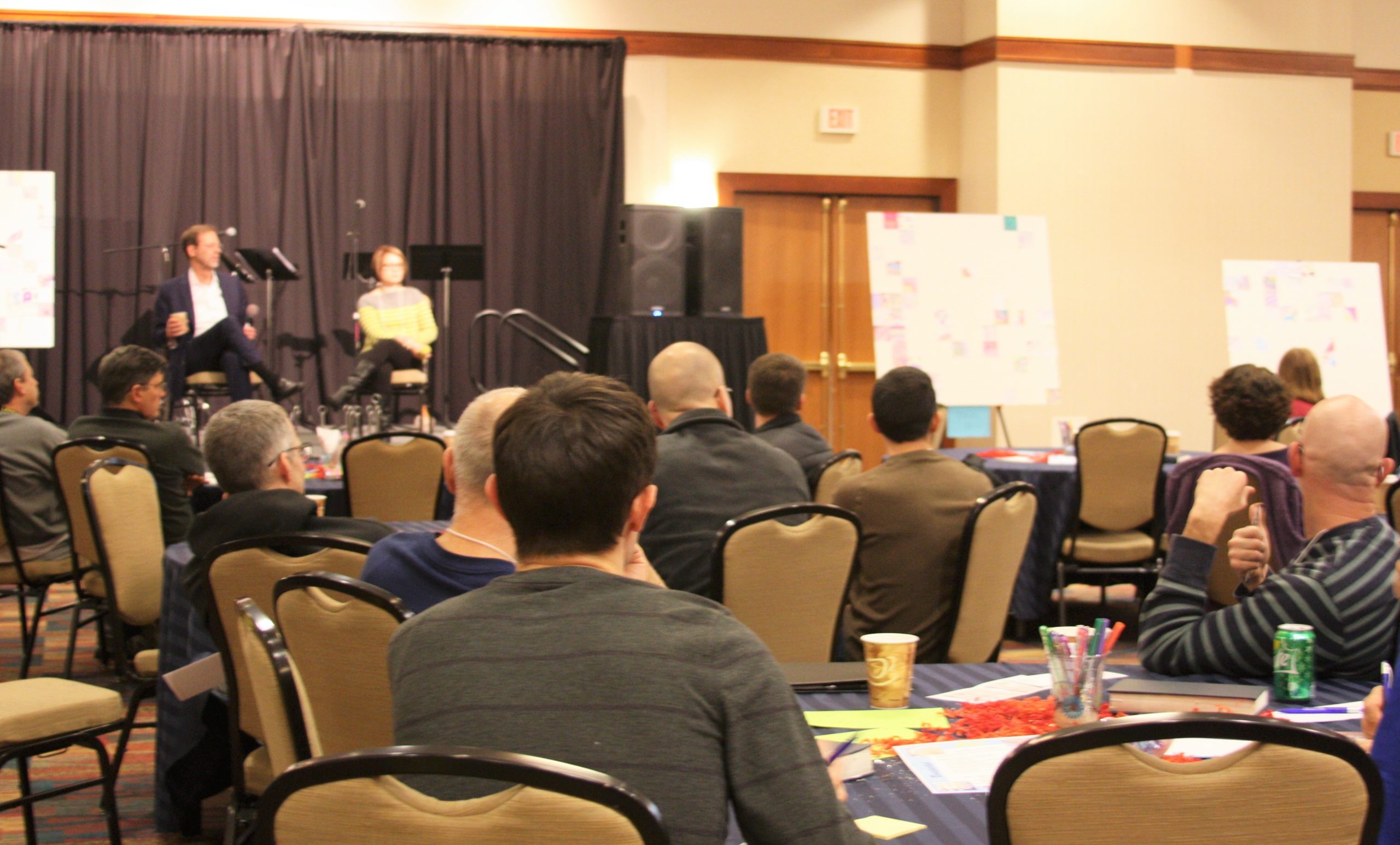
MEC hub with Daniel Porterfield and Elizabeth Landis. Photo by Kayla Berkey.
The MEC facilitators introduced several innovative ways for conference participants to engage with resources and each other. Following general sessions, participants were encouraged to take breaks and connect, and those who were interested could gather for more intimate talk-back sessions with the keynote speakers called “hubs,” moderated by Elizabeth Landis, principal of Lancaster Mennonite Middle School.
In place of traditional workshops, MEC held MennoCamps, inspired by the EdCamp model. In this model, informal group learning sessions were structured as participant-driven and collaborative. Participants were asked to create the sessions through sharing their resources and experiences, and they were encouraged to leave a MennoCamp if it was not feeling beneficial to their grade level, subject matter or experience and join another group where they might find more value.
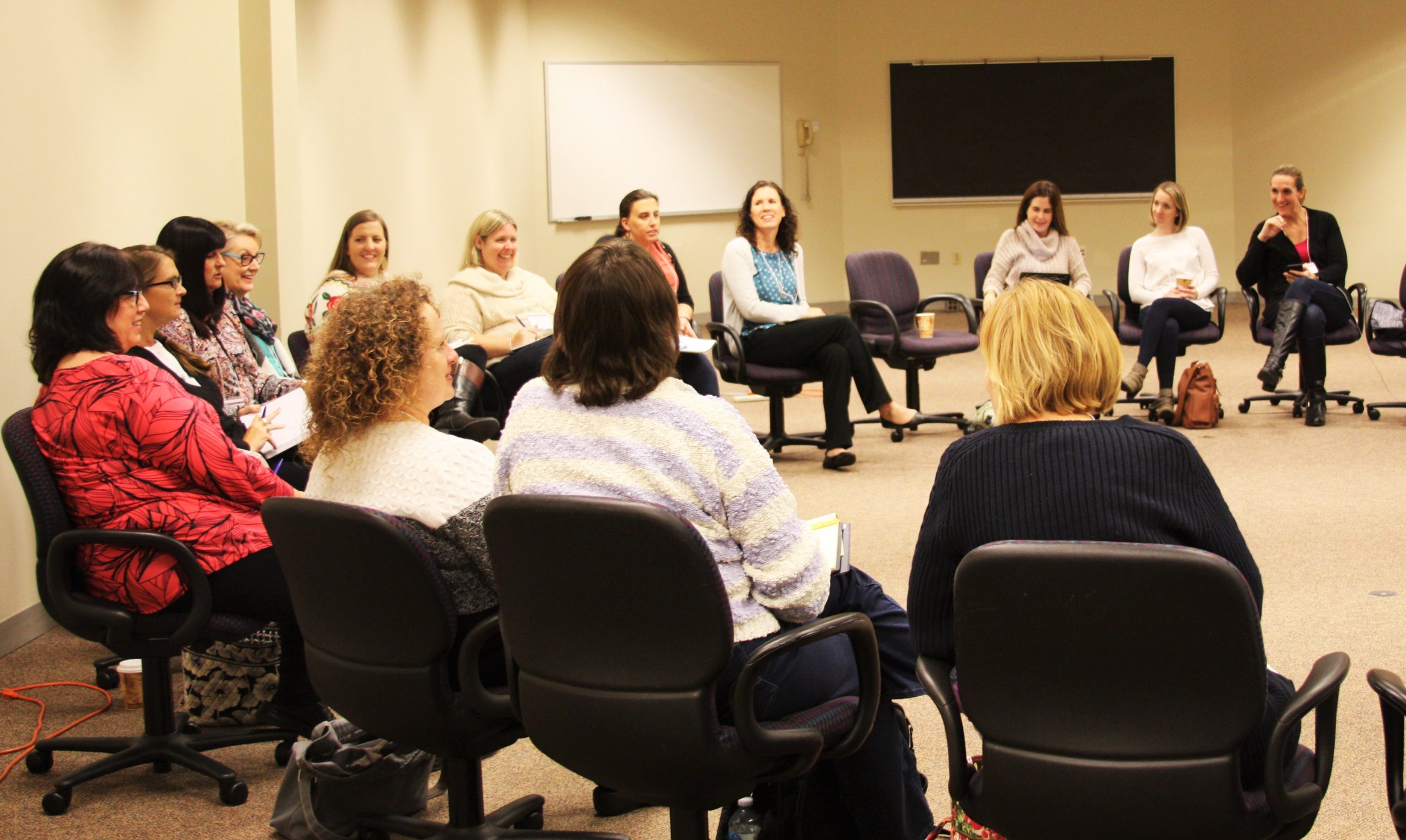
Group meets for MennoCamp session during MEC. Photo by Kayla Berkey.
Session topics were created by inviting all participants to write topic ideas on post-it notes, which conference organizers narrowed down into 48 MennoCamp focus topics. The wide range of session topics included flipped classrooms, student phones and social media, student anxiety, project-based learning and honest conversations on faith and politics.
MEC also provided an opportunity for participants to interact with Encounter, the Mennonite Schools Council (MSC) Bible and faith formation curriculum that is currently in its pilot year. During one session, Bible teachers met with others in their grade levels, and other teachers met in groups arranged into their topic areas. The small groups provided feedback and suggestions for best practices in using the new curriculum.
Academia Menonita Betania Reconstruction
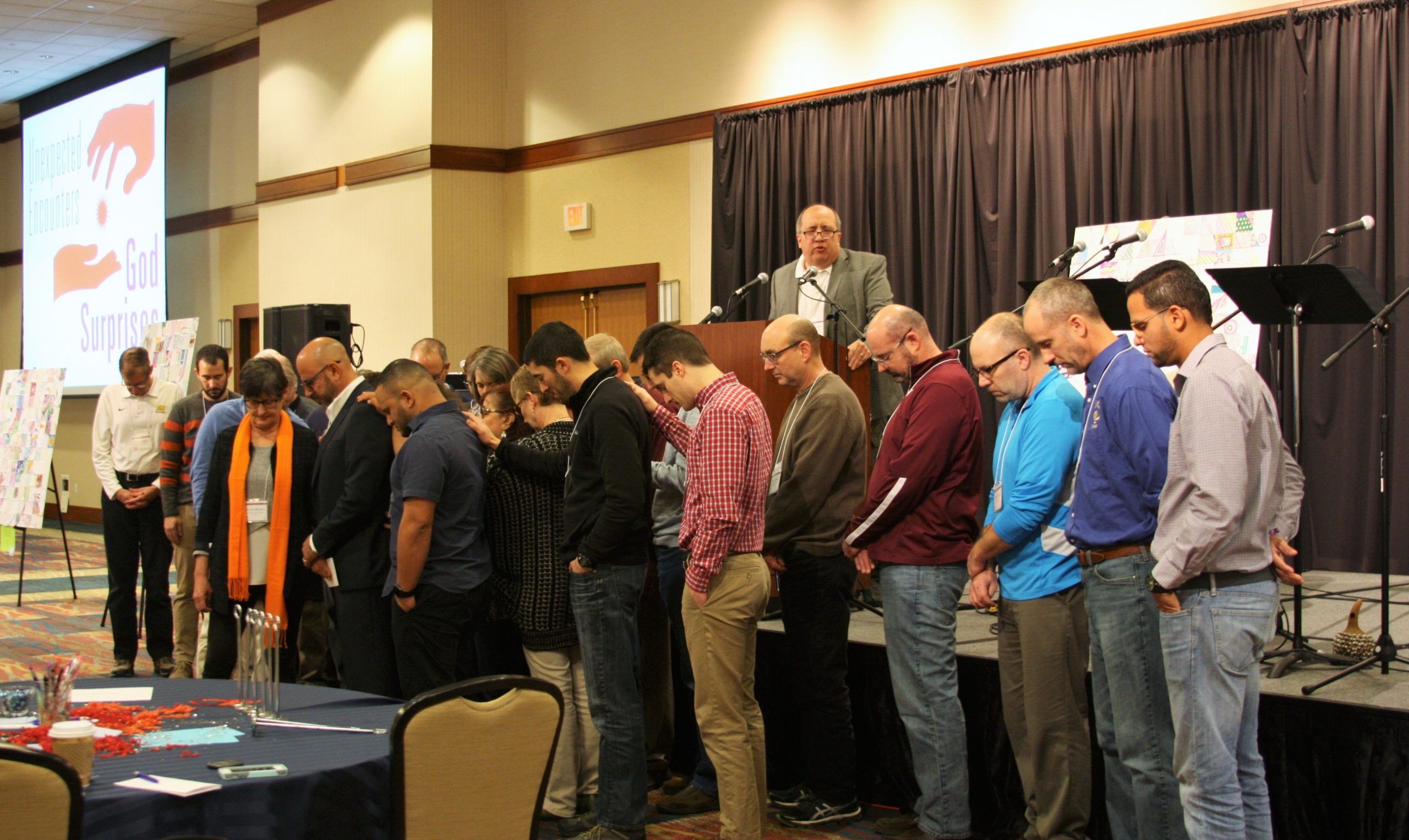
Carlos Romero offers prayers for Academia Menonita Betania together with MSC school administrators. Photo by Kayla Berkey.
At the final general session, Luis Velez, director of Academia Menonita Betania in Puerto Rico offered an update on the damages the school suffered since hurricane Maria hit the island on September 20, 2017. The school reopened to students on October 23, 2017 with no water, electricity or communication. MEA and Mennonite Mission Network launched a campaign in January 2018 to raise $100,000 for the school’s recovery.
Velez acknowledged the ongoing economic challenges for parents in Puerto Rico who have lost their jobs and the ability to pay for their children’s education. He shared the school’s financial needs to subsidize student education, as well as rebuild and replace lost equipment.
“We can reconstruct and make everything new in our building, but if we don’t have students, we can’t do anything,” Velez said. “Thank you to all of you for the support and for sending us letters.”
Carlos Romero, executive director of MEA, shared that the campaign has already raised $94,000. Many MSC schools held fundraisers for this campaign and students wrote letters. Romero invited the school administrators to present Velez with the funds and prayed for Betania and all of the schools present.
Unexpected Encounters…God Surprises
The conference ended with an extended time of worship through song, poetry and prayer.
“God is at work in so many ways in our institutions and throughout our communities,” said Romero. “Ultimately, we believe what we do in Mennonite education at all levels can make a difference in the world.”
Photos available:
https://www.flickr.com/photos/149341981@N02/albums/72157669282499079

